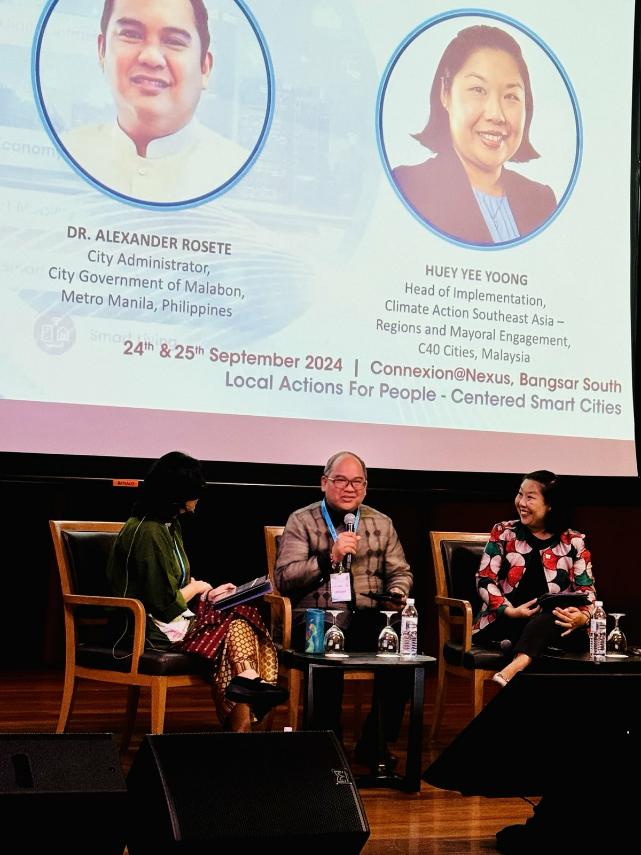The city government of Malabon shared its best practices in addressing flooding and other environmental problems during the Smart Cities Asia Conference 2024 held in Malaysia on Sept. 25.
City administrator Dr. Alexander Rosete, who attended the forum, talked about Malabon’s utilization of advanced technology in the implementation of programs that aim to solve various concerns, including flooding, typhoons, and other calamities.
 (Malabon City PIO)
(Malabon City PIO)
The conference provided a platform for industry professionals, policymakers, and urban innovators to connect and share ideas.
Dr. Rosete shared that since Malabon (a low-lying coast city with about 400,000 residents, 18 rivers and waterways, and near Manila Bay) is highly vulnerable to environmental risks, such as rising sea levels, tidal movements, frequent flooding, and other challenges, the local government has used advanced strategies to improve emergency response, urban planning, and other programs for safety, and security of the city and residents.
He said the local government installed water-level sensors, rain gauges, CCTV cameras, hazard maps, and early warning sirens to effectively monitor weather and waterway conditions, and minimize flooding risks.
Fifty pumping stations, which are being operated by the local government, the Metropolitan Manila Development Authority, and the Department of Public Works and Highways, are integrated into the city's infrastructure to enhance water management and prevent flooding in low-lying areas, he said.
Two automated pumping stations -- Catmon PS and Spine PS -- located in Caloocan, can operate independently, enabling quick water discharge during critical conditions.
“The concept of Smart Cities represents a crucial advancement in addressing the multifaceted challenges of urbanization. As cities grow and evolve, they encounter complex infrastructure, resource management, and quality of life issues. Embracing the principles of Smart Cities offers a pathway to effectively tackle these challenges by harnessing the power of technology and data-driven decision-making,” he said.
Rosete also said that building solid partnerships with stakeholders, active participation of residents, and environmental initiatives of the city were the keys for Malabon to become a resilient city.
“We, as public servants and residents of Malabon, are committed to our goal of making it a livable, safe, and more sustainable city for the Malabueños,” he added.